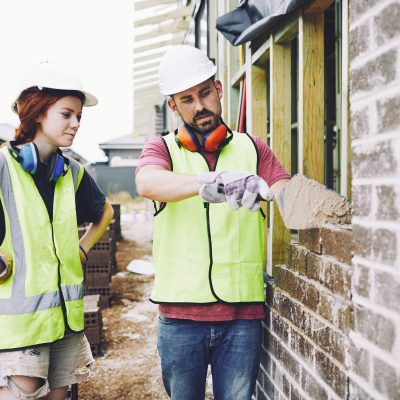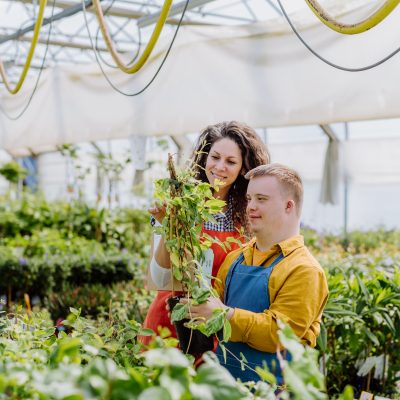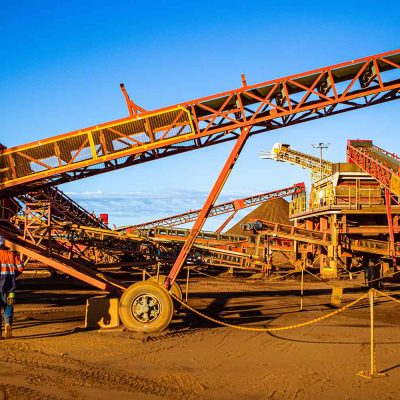Lili Loan Vu on the critical issues economics can help to solve

Lili Loan Vu is a Research Fellow at the Bankwest Curtin Economics Centre, joining the centre in 2021 after completing her thesis on food and nutrition security.
What is it like working at BCEC?
In 2021, I started working as a Research Fellow at BCEC. The Centre’s core mission is to deliver high-quality, accessible research that enhances our understanding of key economic and social issues in Australia, particularly in WA. I love WA and want to contribute my knowledge and research skills to the development of West Australian families, businesses and communities. I am very interested in studying economic and social issues that significantly impact society.
In addition, the Centre’s researchers have expertise in economic forecasting, quantitative modelling and economic and social policy evaluation. I have been working on several projects and learned so much from BCEC Director Professor Alan Duncan, Associate Professor Astghik Mavisakalyan and Professor Mike Dockery. I have also received lots of support and valuable advice from Dr Daniel Kiely, Dr Silvia Salazar, Dr Abebe Hailemariam, Dr Richard Seymour and other colleagues. I love working in the Centre.
What inspired you to become an economist?
When I studied for my Masters degree in Finance at the University of Technology Sydney (UTS), I took some economics units. I was very impressed by my lecturers and decided to explore economics more. I found that economics is one of the most popular fields of study at universities around the globe which studies how individuals, businesses, governments and nations allocate scarce resources. Economics research can inspire business success and impact industries and national economies. Scarcity is also part of every life, and you can use economics theories to make decisions in your real life.
What is your research focus? Tell us more about this.
The ultimate goal of economics research is to improve the living conditions of people in their everyday lives in which health and wellbeing are amongst the most critical issues.
I have been working on development economics and health economics. My research focuses on understanding household-level socio-economic factors that can influence maternal and child health outcomes, food and nutrition security, and gender equality in developing countries.
In the future, I would like to expand the focus not only in developing countries but also in Australia. Australia is one of the most food-secure nations globally, with access to a wide variety of healthy and nutritious foods. However, there are still some concerns that have been continuously raised recently, such as people that are overweight or obese. Around 67 per cent of Australian adults were overweight or obese in 2017-18. That’s approximately 12.5 million adults, a considerable number. Notably, the level of people that are overweight or obese in Australia rose to nearly 72 per cent in 2020-21. I believe that more research on food and nutrition security in Australia would contribute to the reduction of people that are overweight or obese across the country.
Tell us about something interesting you are working on.
I am working on a collaborative project with Minderoo Foundation and Murawin – an Indigenous consulting and research group, to address the factors affecting Indigenous employment in Australia. Australia is made up of over 300 First Nations, and this project aims to create employment parity with and for Indigenous Australians. Specifically, the project highlights and identifies current practices that contribute to sustainable Indigenous employment.
The other research that I am also working on is investigating the impacts of intimate partner violence (IPV) on child health outcomes in Australia. The presence of IPV within the household has profound consequences for children’s health and wellbeing. In addition, what are its implications for mental and physical development in children? And what are the factors that mitigate the developmental losses associated with exposure to IPV? This research uses data collected in Australia to investigate these questions.
What support have you had to enable your career?
Luckily, I have received lots of support from many people who have guided me through every step in my career.
Firstly, I would like to thank my PhD supervisor, Professor Anu Rammohan, for her thoughtful tutelage and continuous encouragement throughout my studies as well as continuous guidance and support after I graduated. My thanks also go to Associate Professor Astghik Mavisakalyan for her valuable advice and encouragement.
A special acknowledgement goes to Professor Alan Duncan, BCEC Director, who I have been working with since I joined BCEC. I have learned so much from him, from forming research ideas, and communicating with research partners, to making research findings more accessible to the public through simple and concise information.
Finally, I must thank my parents, who gave me confidence and taught me how to become a tolerant, responsible and organised person. I also want to thank my husband, who always gives me lots of love and keeps me moving forward in my career.
What key skills do you need for your job?
The first professional skill to be an economics researcher is expertise in sophisticated economic modelling and programming applied to real-world economic and social issues.
Time management would be another vital skill for my job. I have to work on different projects simultaneously, and managing time effectively helps me meet all the deadlines on time.
Finally, good communication skills are essential to share information accurately and quickly and resolve conflicts in teamwork. To me, communication skills aid in all aspects of life.




